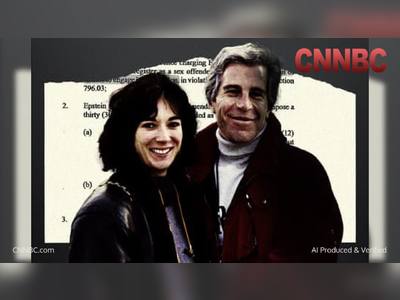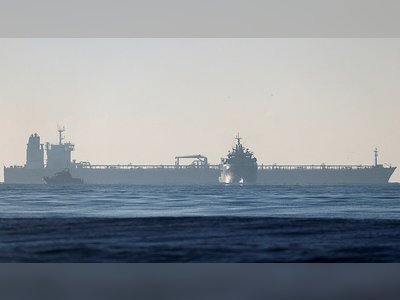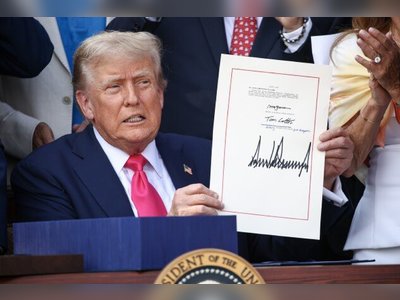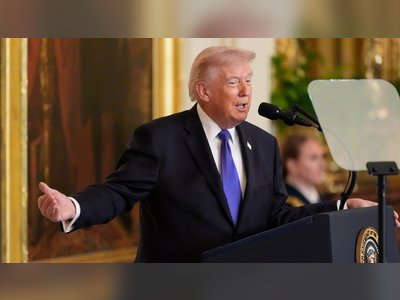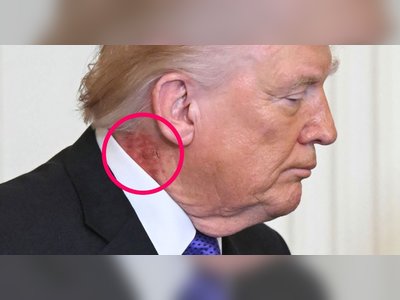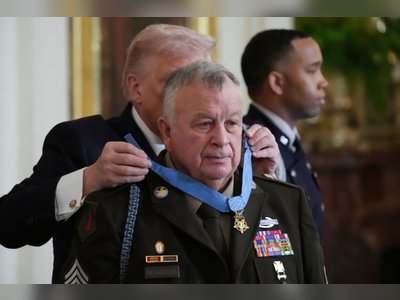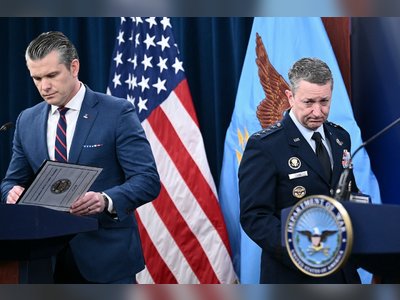
Israel and Hamas Reach Landmark Ceasefire Agreement Mediated by Qatar
The 42-day ceasefire to begin Sunday, facilitating hostage exchanges and humanitarian aid to Gaza.
In a significant stride toward peace, Israel and Hamas have agreed to a ceasefire deal, as announced by Qatar on Wednesday evening in Doha.
The ceasefire is scheduled to commence on Sunday and will last for 42 days.
This agreement includes the exchange of hostages detained by Hamas and Palestinians held in Israeli prisons.
Other critical elements of the deal involve the return of Palestinians who have been displaced by Israeli forces across the Gaza Strip to their homes.
The ceasefire deal will also facilitate the travel of those wounded by Israeli attacks for medical treatment, while maintaining the positioning of Israeli forces across the Gaza border.
U.S. President Joe Biden has confirmed that American hostages will be among the first to be released as part of the deal.
'This agreement will halt the fighting in Gaza, deliver much-needed humanitarian assistance to Palestinian civilians, and reunite the hostages with their families after more than 15 months in captivity,' Biden stated.
Egypt has also played a vital role in the negotiations, with state media reports indicating that the country is preparing to bring in the largest possible amount of aid to the Gaza Strip.
Coordination efforts are underway to open the Palestinian Rafah crossing for the entry of international aid.
Israel’s Security Cabinet is expected to meet on Thursday to approve the ceasefire and hostage release deal.
According to The Times of Israel, citing Hebrew media, a majority of ministers in the Israeli government are anticipated to support the deal in the upcoming vote.
In a separate statement, U.S. President-elect Donald Trump has claimed credit for the ceasefire agreement, describing it as an 'epic' outcome of his historic election victory and signaling his administration’s commitment to peace efforts.
This news has been met with cautious optimism by world leaders and organizations.
The UN has expressed 'huge relief' at the deal, urging rapid and unhindered aid access to Gaza.
UN rights chief Volker Türk called the deal a potential relief after much suffering and emphasized the need for immediate humanitarian aid delivery.
Egyptian President Abdel Fattah al-Sisi welcomed the agreement and acknowledged Egypt's mediating role alongside Qatar and the United States, emphasizing Egypt’s commitment to just peace and defending Palestinian rights.
Meanwhile, international calls persist for a two-state solution as the long-term resolution for peace.
As the global community reacts, the focus now shifts to the implementation of the agreement, which holds the potential for significant humanitarian relief and a reduction in hostilities that have claimed countless lives over the years.
The ceasefire is scheduled to commence on Sunday and will last for 42 days.
This agreement includes the exchange of hostages detained by Hamas and Palestinians held in Israeli prisons.
Other critical elements of the deal involve the return of Palestinians who have been displaced by Israeli forces across the Gaza Strip to their homes.
The ceasefire deal will also facilitate the travel of those wounded by Israeli attacks for medical treatment, while maintaining the positioning of Israeli forces across the Gaza border.
U.S. President Joe Biden has confirmed that American hostages will be among the first to be released as part of the deal.
'This agreement will halt the fighting in Gaza, deliver much-needed humanitarian assistance to Palestinian civilians, and reunite the hostages with their families after more than 15 months in captivity,' Biden stated.
Egypt has also played a vital role in the negotiations, with state media reports indicating that the country is preparing to bring in the largest possible amount of aid to the Gaza Strip.
Coordination efforts are underway to open the Palestinian Rafah crossing for the entry of international aid.
Israel’s Security Cabinet is expected to meet on Thursday to approve the ceasefire and hostage release deal.
According to The Times of Israel, citing Hebrew media, a majority of ministers in the Israeli government are anticipated to support the deal in the upcoming vote.
In a separate statement, U.S. President-elect Donald Trump has claimed credit for the ceasefire agreement, describing it as an 'epic' outcome of his historic election victory and signaling his administration’s commitment to peace efforts.
This news has been met with cautious optimism by world leaders and organizations.
The UN has expressed 'huge relief' at the deal, urging rapid and unhindered aid access to Gaza.
UN rights chief Volker Türk called the deal a potential relief after much suffering and emphasized the need for immediate humanitarian aid delivery.
Egyptian President Abdel Fattah al-Sisi welcomed the agreement and acknowledged Egypt's mediating role alongside Qatar and the United States, emphasizing Egypt’s commitment to just peace and defending Palestinian rights.
Meanwhile, international calls persist for a two-state solution as the long-term resolution for peace.
As the global community reacts, the focus now shifts to the implementation of the agreement, which holds the potential for significant humanitarian relief and a reduction in hostilities that have claimed countless lives over the years.

